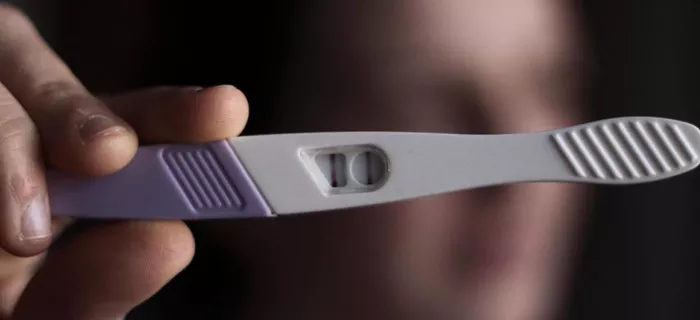Pregnancy is an exciting journey filled with many questions and concerns. One common question among women trying to conceive is, “Can I take a pregnancy test after implantation bleeding?” This article aims to provide comprehensive information on this topic, offering clear and straightforward answers.
Understanding Implantation Bleeding
What is Implantation Bleeding?
Implantation bleeding occurs when a fertilized egg attaches itself to the lining of the uterus. This process usually happens about 6 to 12 days after conception. The bleeding is typically light and can be mistaken for a menstrual period.
How to Identify Implantation Bleeding?
Implantation bleeding is usually lighter than a regular period. It often appears as spotting or a light flow that lasts for a few hours to a few days. The color can range from light pink to brown. Unlike a period, it does not involve heavy bleeding or clots.
Timing of Pregnancy Tests
When is the Right Time to Take a Pregnancy Test?
Pregnancy tests measure the level of human chorionic gonadotropin (hCG) in the urine. This hormone is produced after the fertilized egg implants in the uterus. It typically takes a few days for hCG levels to rise enough to be detected by a home pregnancy test.
Can You Take a Pregnancy Test After Implantation Bleeding?
Yes, you can take a pregnancy test after implantation bleeding. However, it is advisable to wait a few days after the bleeding has stopped to ensure that hCG levels are high enough to be detected. Testing too early may result in a false-negative result.
SEE ALSO: How Many Days is a Normal Pregnancy?
Types of Pregnancy Tests
Home Pregnancy Tests
Home pregnancy tests are convenient and widely available. They vary in sensitivity, with some tests capable of detecting lower levels of hCG than others. Follow the instructions carefully to ensure accurate results.
Blood Tests
Blood tests are performed at a doctor’s office and can detect pregnancy earlier than home tests. There are two types of blood tests: qualitative, which gives a yes or no answer, and quantitative, which measures the exact amount of hCG in the blood.
Factors Affecting Test Accuracy
Timing
Testing too early can lead to inaccurate results. It is best to wait until after a missed period to take a home pregnancy test. If you are testing after implantation bleeding, waiting a few more days can improve accuracy.
Test Sensitivity
Different tests have different sensitivities. Tests that can detect lower levels of hCG are more likely to give an accurate result earlier. Check the packaging to see how sensitive the test is.
Urine Concentration
The concentration of your urine can affect test results. First-morning urine is usually more concentrated and may provide more accurate results. Avoid drinking large amounts of fluids before taking the test.
Interpreting Test Results
Positive Result
A positive result indicates pregnancy. Even a faint line on a home pregnancy test is usually a positive result. If you get a positive result, contact your healthcare provider to confirm the pregnancy and start prenatal care.
Negative Result
A negative result may mean you are not pregnant or that it is too early to detect hCG. If you suspect you are pregnant but receive a negative result, wait a few days and test again. If your period is late and you continue to get negative results, consult your healthcare provider.
Dealing with Uncertainty
False Negatives
A false-negative result can occur if the test is taken too early or if the urine is too diluted. Waiting a few days and testing again can help avoid this issue.
False Positives
False-positive results are rare but can occur. Certain medications and medical conditions can cause a false positive. If you get a positive result and are unsure, consult your healthcare provider for confirmation.
When to See a Doctor
Confirming Pregnancy
If you receive a positive home pregnancy test, schedule an appointment with your healthcare provider to confirm the pregnancy and begin prenatal care. Early prenatal care is important for the health of both you and your baby.
Persistent Negative Results
If you miss your period but continue to receive negative home pregnancy test results, consult your healthcare provider. They can perform a more sensitive pregnancy test and help determine the cause of the missed period.
Emotional Considerations
Hope and Disappointment
The process of trying to conceive can be emotionally challenging. Hope and excitement can quickly turn to disappointment with a negative result. It is important to manage expectations and have a support system in place.
Seeking Support
Talk to your partner, friends, or family about your feelings. Joining a support group for women trying to conceive can also provide emotional support and helpful information.
Conclusion
Taking a pregnancy test after implantation bleeding can be a pivotal moment in your journey to conception. While it is possible to test after implantation bleeding, waiting a few days can improve the accuracy of the test. Understanding the factors that affect test accuracy and knowing when to see a doctor can help you navigate this process with confidence. Remember, whether the result is positive or negative, support is available to help you through the emotional ups and downs of trying to conceive.


